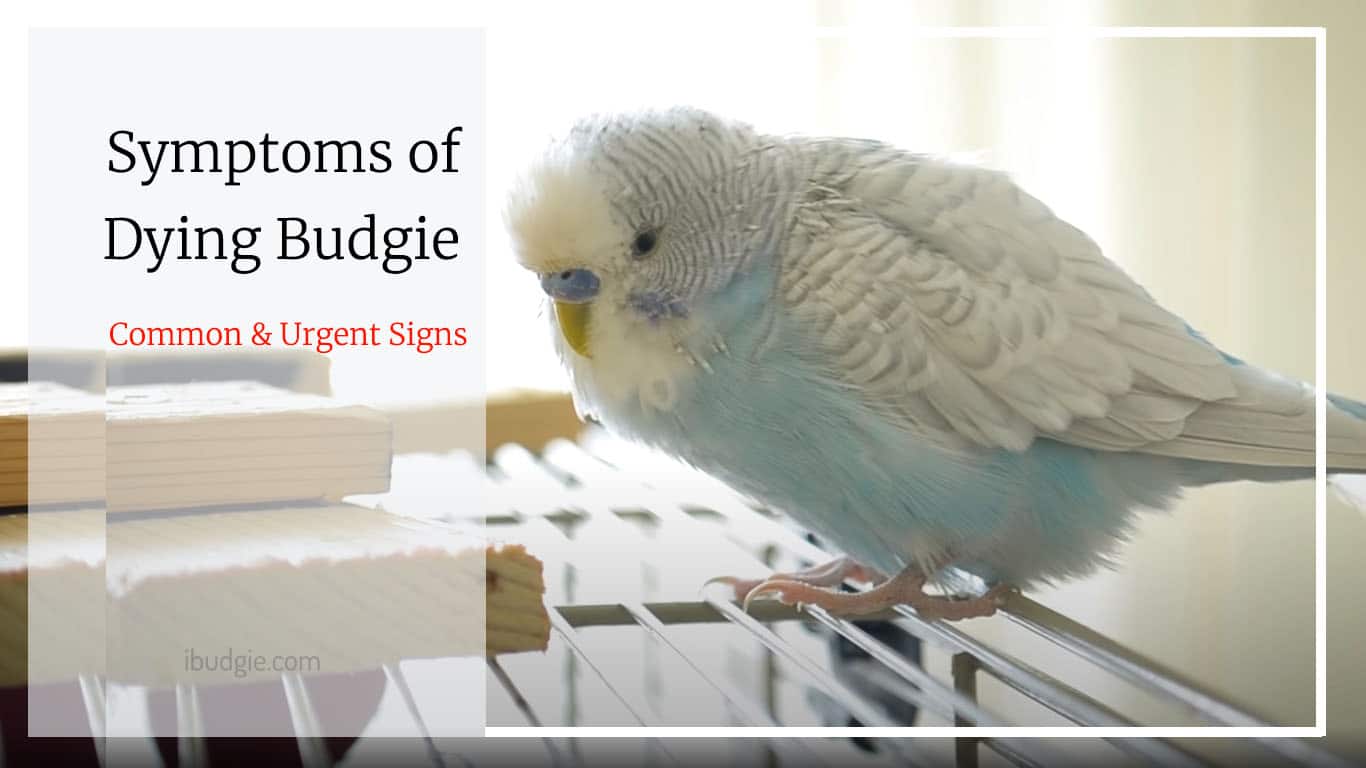As devoted parakeet owners, we share an unwavering bond with our vibrant, chirping companions. However, amidst their joyful antics, it’s crucial to stay vigilant for any signs of illness that may compromise their well-being. Understanding how to recognize the telltale symptoms of a sick parakeet empowers us to provide timely and compassionate care, ensuring their continued happiness and vitality.

Image: www.ibudgie.com
Exhibiting Physical Distress: Subtle Cues to Monitor
Attentive observation of your parakeet’s physical appearance and behavior offers invaluable insights into their health status. A healthy parakeet exudes vibrancy and energy, with bright eyes, a lively demeanor, and a smooth, well-groomed plumage. However, even subtle changes in these traits could signal an underlying issue.
Ruffled Feathers: Parakeets instinctively fluff their feathers to trap warm air and maintain body temperature. Excessive feather ruffling or a hunched posture, especially when accompanied by shivering, might indicate illness or discomfort.
Nasal Discharge: A clear or watery discharge from the nostrils is typically associated with a respiratory infection. Conversely, a thick, yellowish discharge suggests a sinus infection.
Droopy Wings: Drooping wings, particularly when they drag along the ground, are a concerning sign of weakness or illness. It could signify joint pain, respiratory distress, or neurological issues.
Lethargy: A normally active parakeet suddenly displaying lethargy, refusing to play or interact, requires immediate attention. This lack of energy may stem from illness, pain, or other underlying health concerns.
Behavioral Clues: Uncharacteristic Changes to Watch For
Beyond physical symptoms, monitoring your parakeet’s behavior is equally important. Changes in their typical routines, such as feeding and activity levels, often point towards potential health issues.
Loss of Appetite: A sudden loss of appetite, especially for favorite treats, can indicate illness. Digestive issues, such as nausea, vomiting, or diarrhea, may also manifest this way.
Changes in Vocalizations: Healthy parakeets are known for their melodious chirps and chatter. Uncharacteristic silence or labored breathing during vocalization may signify respiratory problems.
Feather Picking: Excessive feather picking, particularly when accompanied by feather loss or bald patches, could indicate stress, boredom, or skin irritation caused by mites or lice.
Advanced Symptoms: Urgent Veterinary Attention Required
Certain symptoms demand immediate veterinary intervention. These include:
Difficulty Breathing: Labored breathing, wheezing, or coughing warrants professional medical attention. Respiratory problems can rapidly worsen and endanger your parakeet’s life.
Seizures: Sudden seizures, characterized by uncontrolled muscle movements, necessitate urgent veterinary care. They may indicate neurological issues that require specialized treatment.
Paralysis: Paralysis, which can present as an inability to stand or move limbs, signifies a neurologic emergency. Prompt medical intervention is crucial for the best possible outcome.

Image: www.wikihow.com
How To Tell If Parakeet Is Sick
Prevention and Early Detection: Proactive Measures for Optimal Health
While attentive care cannot entirely prevent illness, proactive measures can significantly enhance your parakeet’s overall health and well-being:
Regular Checkups: Schedule routine veterinary checkups to catch potential health issues early on, when treatment has a higher probability of success.
Quality Nutrition: Provide a balanced and nutritious diet, including fresh fruits, vegetables, and a commercial seed mix formulated specifically for parakeets.
Clean and Safe Environment: Maintain a clean cage and provide fresh water daily. Remove droppings and uneaten food regularly to prevent the buildup of bacteria.
Socialization and Enrichment: Keep your parakeet intellectually and emotionally stimulated through interactive toys, a companion bird, and engaging daily interactions.
Early Intervention: Recognizing the signs of illness and seeking veterinary attention promptly is crucial for effective treatment and recovery. Never hesitate to consult a veterinarian if you have concerns about your parakeet’s health.
In conclusion, understanding how to tell if your parakeet is sick empowers you to provide the best possible care for your cherished companion. By embracing proactive measures, monitoring their physical and behavioral cues, and recognizing advanced symptoms, you can play a vital role in maintaining their vitality and well-being. Your attentiveness and devotion will ensure that your beloved parakeet continues to bring joy and companionship into your life for many years to come.


/GettyImages-1303637-two-way-mirror-57126b585f9b588cc2ed8a7b-5b8ef296c9e77c0050809a9a.jpg?w=740&resize=740,414&ssl=1)


